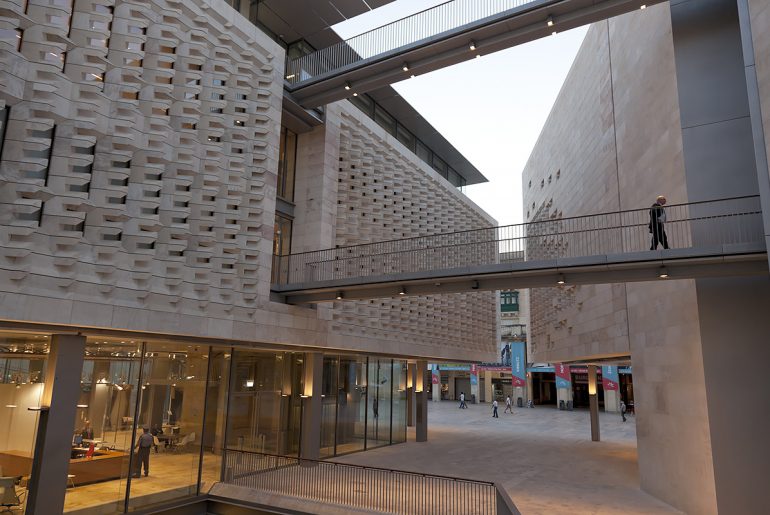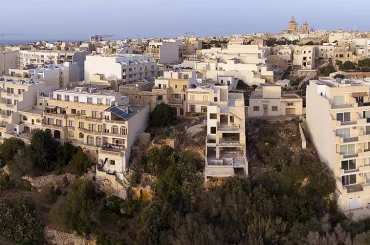I know someone who had an upcoming case in the criminal court just about the same time that mine would be heard. Her case was over domestic violence; my case was over a threatening message sent to me after I published an investigative article. Our cases were both due to be heard towards the end of the year; we were both notified at the end of last summer.
Then the other person’s case was suddenly reassigned – and brought forward by seven months. But mine was not: mine remains scheduled for this December – and that is 18 months after I made the police report, and 14 months after I received the court summons to testify.

So what changed for the other person – and why nothing has changed for me? Perhaps you can ask the government. After all, it was the justice minister who announced, at the beginning of this year, that a second magistrate would be assigned to cases of domestic violence even though, according to the constitution, it is the chief justice who assigns members of the judiciary to specific courts and specific tasks.
This happened at a time when the government was under much pressure to tackle delays in domestic violence cases in the criminal court. There have also been other instances recently when the government has shifted political pressure that the government was under onto the judiciary. This was apparent last week in parliament when the government put an amendment to an opposition motion to hold a public inquiry into the death of Jean Paul Sofia – the construction worker who died when a building that was being constructed collapsed – by shifting the pressure onto the magistrate holding a magisterial inquiry into the tragedy. The opposition motion called for a public inquiry; the government then introduced an amendment to the motion that instead calls for an expedited completion of the magisterial inquiry. A vote on the motion shall now be taken tomorrow.
The government’s amendment not only gratuitously and unfairly shifts political pressure onto the courts. It is also counter-productive to have the government bear down on a court system that is already overstretched, and to put pressure on members of the judiciary who are overworked if not overwhelmed.

Magistrates have long been struggling to cope with the workload, and this accounts for perpetual delays in completion of magisterial inquiries. Putting pressure on the magistrate holding the inquiry – Marsanne Farrugia – is unfair (because a member of the judiciary is precluded by the code of ethics from engaging with the media to defend herself), demoralizing, and hardly conducive to good outcomes.
It is apt at this point to repeat recommendations that have been made repeatedly over the years: what is needed to have more efficient magisterial inquiries is to appoint a complement of magistrates who would deal only with inquiries and to give them the resources, especially trained staff, to be able to carry out inquiries efficiently and effectively.
The question posits itself: why has this government, as others before it, left magistrates to hobble along on magisterial inquiries?

At present, the situation in court is dire. Its operations are stretched by a shortage of staff (especially trained staff), shortage of magistrates and judges, and scant or insufficient working place.
On top of this, members of the judiciary are under pressure from government and society to decide on cases expeditiously. Court sources have also told me that the chief justice has also been putting pressure on members of the judiciary to be expeditious.
The problem is that in a situation of shortage of staff and heavy workload, something has to give and there are signs that the pressure on magistrates to clear cases is leading to more – not less – efficiency. This is because any hasty or hurried decisions in the magistrates’ courts in turn then lead to higher proportion of appeals, shifting some of the burden onto the second instance courts.
It has not helped that, in a misguided attempt to deal with increasing workload in the court system, governments have tended to set specialized tribunals. But this has led to a problem that the Council of Europe’s constitutional body, the Venice Commission, has called “double jurisdiction.” This is much evident in the case of the planning tribunal, which hears appeals to Planning Authority decisions. The planning tribunal often leaves appellants feeling aggravated, leading to extra cases in court as appellants increasingly resort to the courts to either appeal the tribunal’s decisions or to directly seek remedy in court that they feel the tribunal is denying them.
All of us want and expect an efficient justice system. And – if I have to be personal – I also deserve to have my case, in which I was threatened in the course of my work, heard in a timely fashion.
Likewise, everyone subject to a magisterial inquiry deserves expeditiousness. Yet the government has no qualms calling for expeditious completion of inquiry in the case of Jean Paul Sofia – because it is under political pressure to hold a public inquiry – but then letting all other inquiries languish. This is neither fair nor reasonable.
After all, it is the government’s failure to give the court the resources or tools it needs that has created inefficiency.
And it is the politicians who are to blame for other problems – the “double jurisdiction” problem or drag inherent in the system of flawed tribunals, the passage of laws that legal experts concur are unconstitutional (and then create challenges in court, further clogging the system), other hiccups – that create further pressures in a system already beleaguered.
But instead of fixing the system, and giving the judiciary the tools it needs, the government seems to have no qualms blaming the judiciary for problems of the government’s own making.
Featured Image: Parliament building, image copyright Victor Paul Borg
Sustain Analyses & Insight
Robustly researched and professionally delivered analyses and insight features on this website take much time, effort, and resources to produce. This website's donation setup itself is uniquely transparent, with targeted amounts – of just €50 every month for analyses – that allow tracking of donations in real time on the page. Contribute as little as €5.





